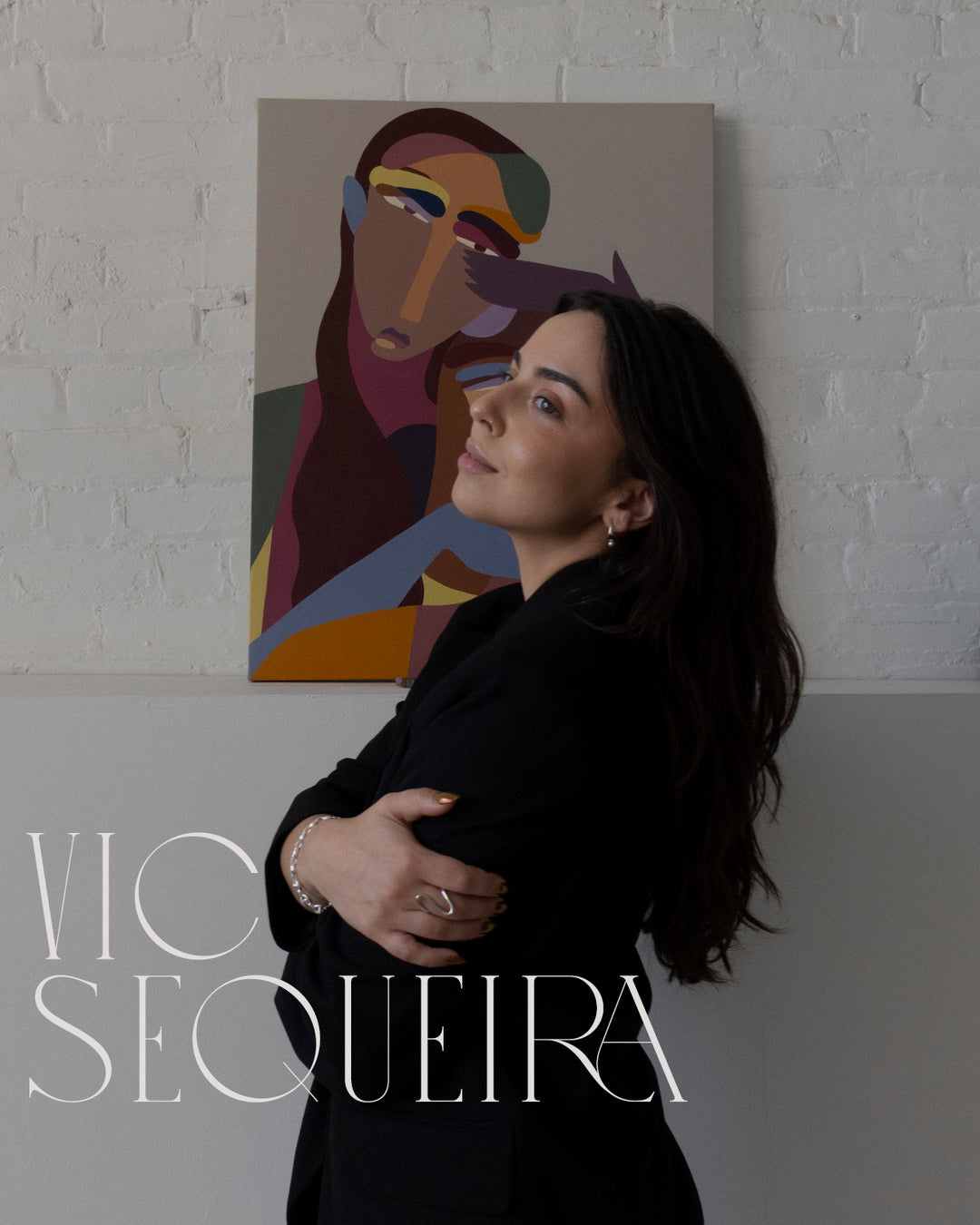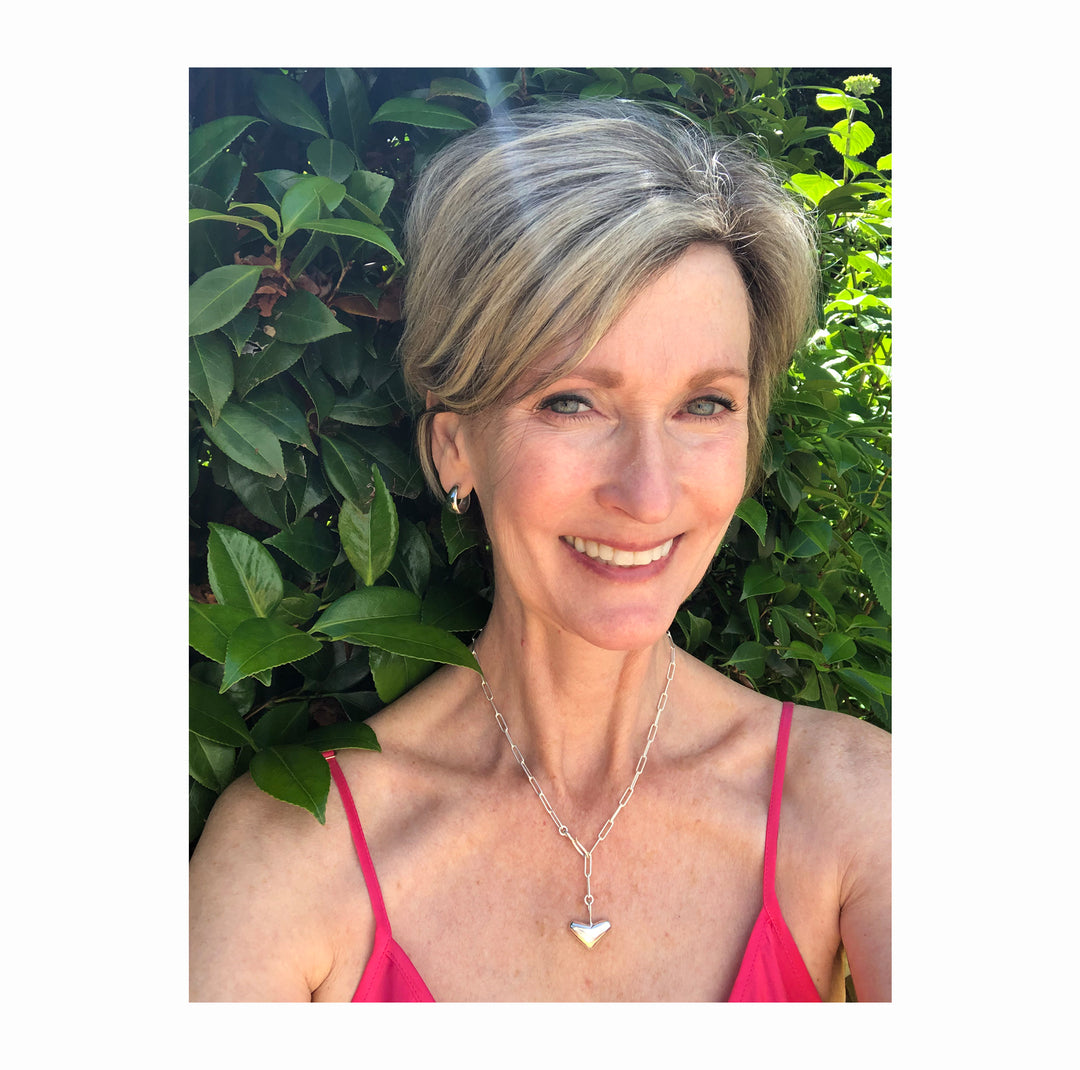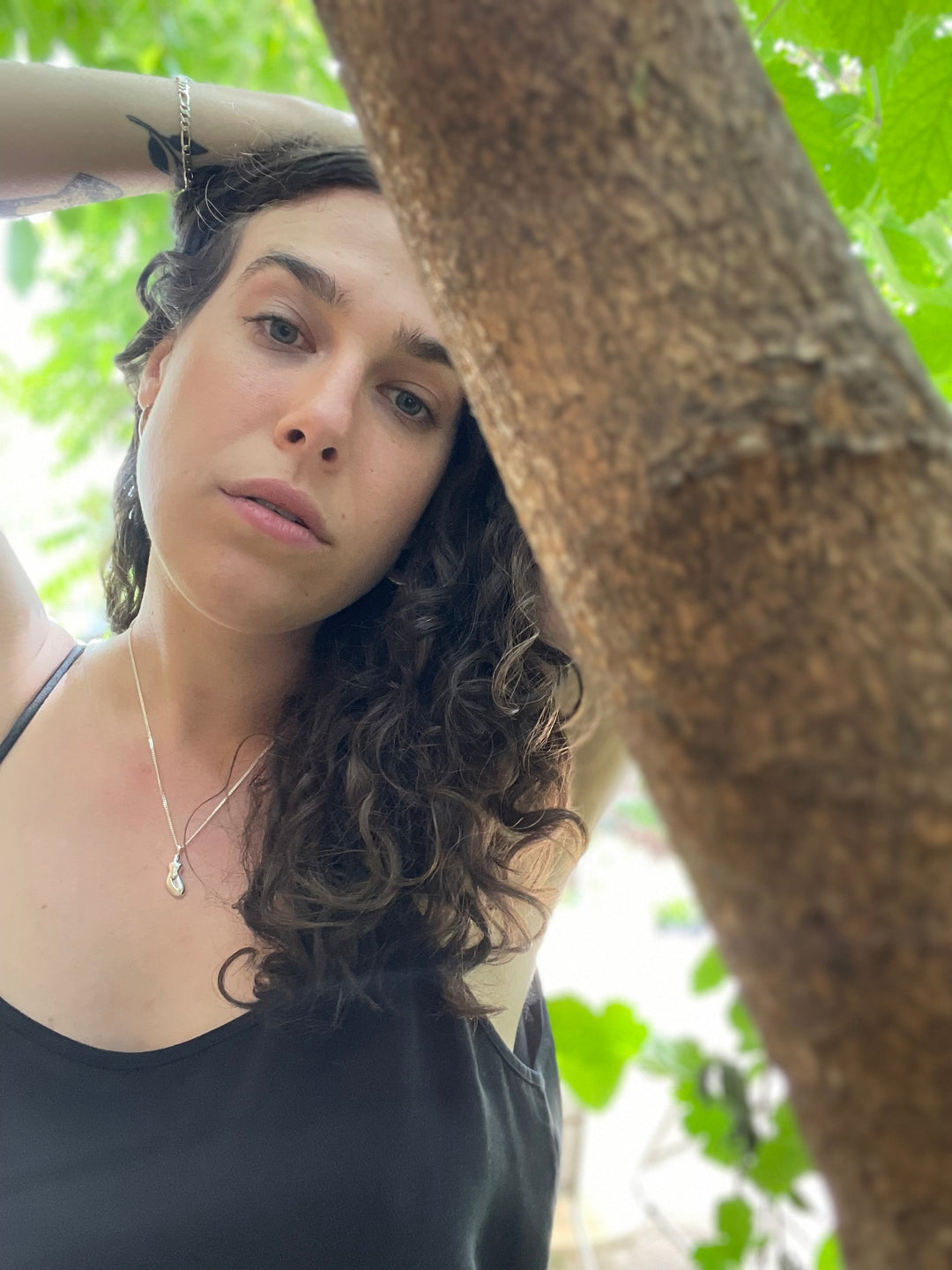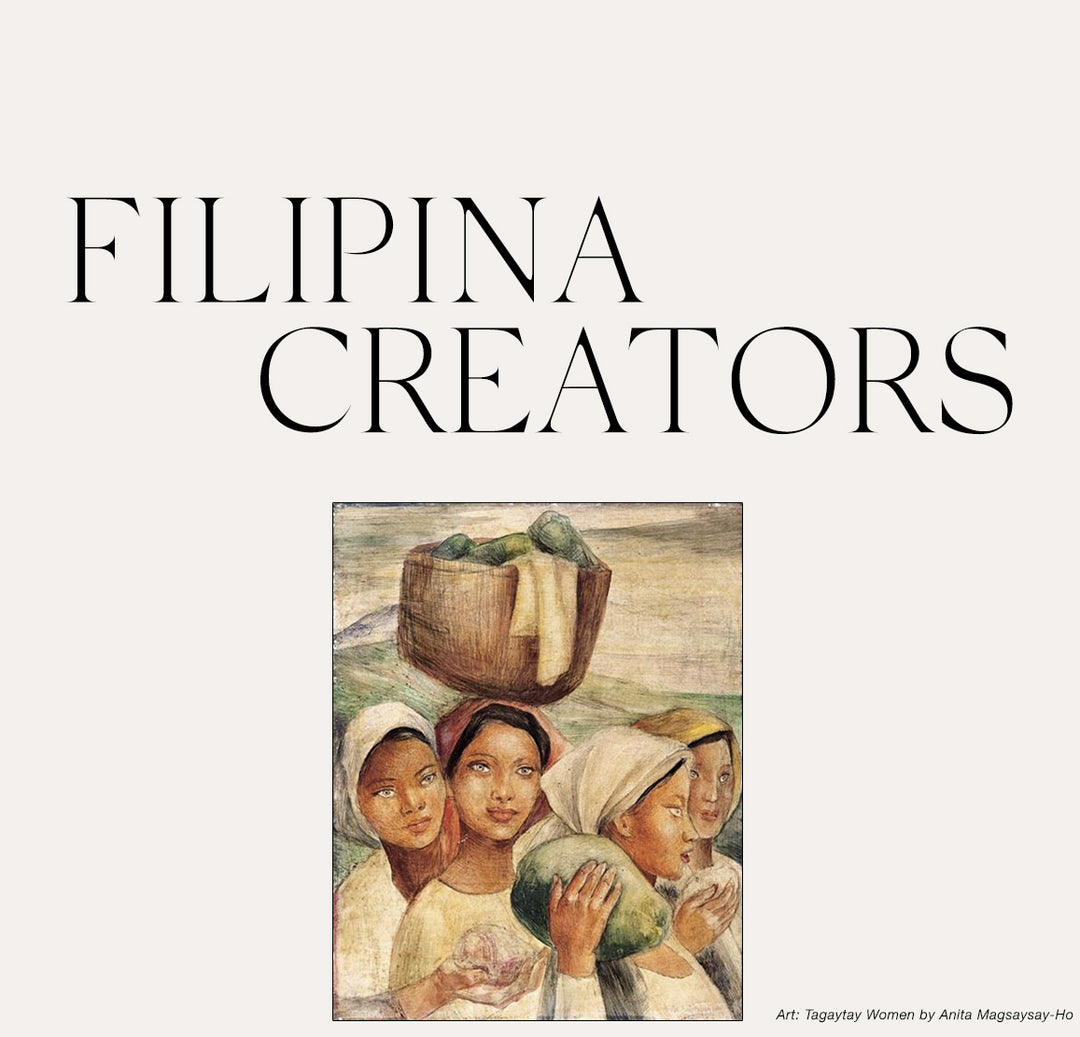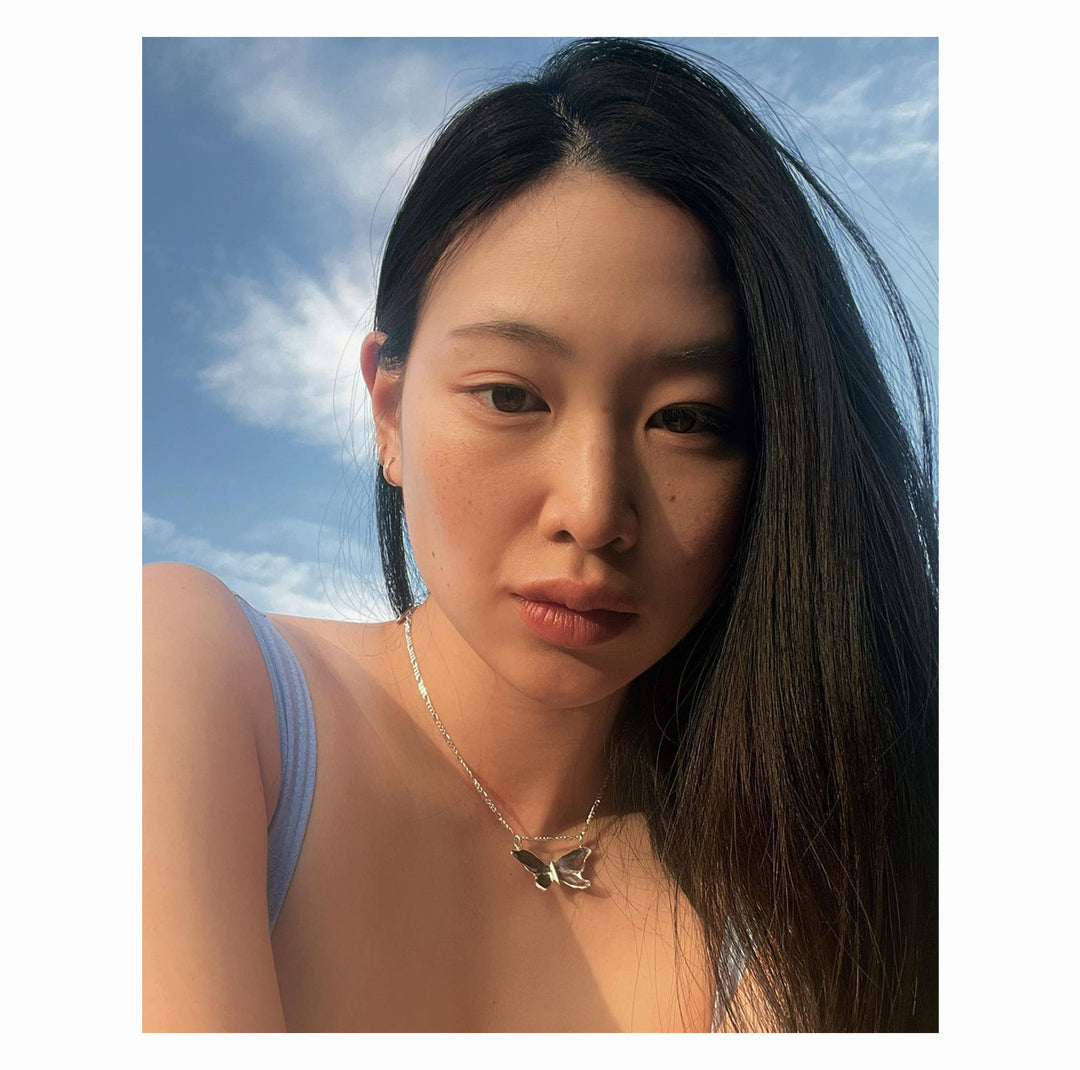CADETTE WOMEN | Quinn Rockliff
I truly feel like it was only a matter of time before Quinn Rockliff and I would meet.
I'm so grateful that Quinn's partner spotted the Female Form Necklace some time in the weeks leading up to her birthday. And gifted it to her for her special day – knowing that the necklace's woman figure would have a genuine connection to Quinn and the incredible artwork she creates.
True to form in this digital era, social media (finally) connected us! Quinn shared a photo on Instagram of her wearing the new Female Form necklace on her birthday, and it's safe to say I became a fan, straightaway. I shamelessly scrolled through Quinn's entire page, admiring her refreshingly open point-of-view around womanhood, sexuality, vulnerability & more. All showcased through her illustrations, paintings, and conversation-worthy captions.
I jumped at the opportunity to ask Quinn to be my muse for a series of new Cadette visuals for the Holiday season (a few of which are featured in this story). And I couldn't help but to also host this brief Q&A with her, for Cadette Woman no.3. In the interview, we discuss the role art has played in her life, how she's navigated womanhood, her advice to fellow ambitious creatives, and more.











